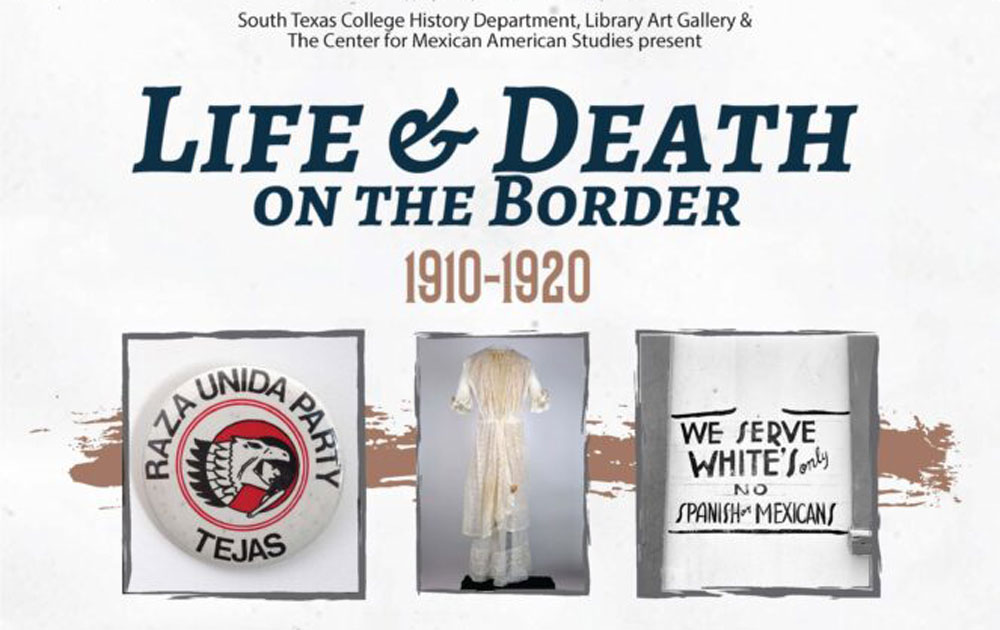The South Texas College Pecan campus Library Art Gallery, History Department and the Center for Mexican American Studies proudly present “Life and Death on the Border: 1910-1920,” a panel exhibit that includes photographs, postcards, court documents and rare artifacts that tell the story of daily life and re-examines Texas historical events of the early 1900s in the Rio Grande Valley and South Texas.
STC History Professor and co-founder of the Refusing to Forget project Trinidad Gonzales, Ph.D., worked alongside colleagues throughout the state and nation to help research and put together this exhibit and event series. These histories inspired Tejano literature, art and music and influenced the creation of the Mexican American civil rights movement.
“It is a historic exhibit that STC is fortunate enough to exhibit for the first time since 2016,” said Gonzales. “The legacies of these histories are intertwined with local history of the Rio Grande Valley and are finally getting told to a wider audience.”
The exhibit will be on view from February 9 – June 6 at the STC Pecan campus Library. A playlist put together by the Bullock Museum to accompany the exhibit, Música Tejana, is a “collection of musical forms, styles and genres that evolved primarily in South Texas during the 19th century and narrated the lives and challenges of people living along the south Texas-northern Mexican border.”
“This exhibit is the first attempt by the state of Texas to tell the tragic history of the matanza of 1915 and the Porvenir Massacre of 1918,” said Gonzales. “It tells the tales of the heroic efforts by ethnic Mexicans to have those killings addressed at the time and the present.”
Bullock Texas State History Museum is located in Austin, Texas, and works to preserve and exhibit Texas history and culture. Refusing to Forget is a multifaceted public history project that seeks to spread awareness of violence against Mexicans and Mexican Americans at the hands of both vigilante groups and state agents, such as the Texas Rangers.
“Life and Death on the Border” was originally produced by the Bullock Texas State History Museum in collaboration with Refusing to Forget. The “Life and Death on the Border” exhibit has been made possible in part by a grant from the National Endowment for the Humanities: Sustaining Humanities through the American Rescue Plan in partnership with the American Historical Association. Any views, findings, conclusions, or recommendations expressed in this exhibition do not necessarily represent those of the American Historical Association or the National Endowment of the Humanities.
Founded in 1993, South Texas College is accredited by the Commission on Colleges of the Southern Association of Colleges and Schools and offers more than 127 degree & certificate options, including associate degrees in a variety of liberal art, social science, business, math, science, technology, advanced manufacturing and allied health fields of study. Additionally, South Texas College is the only community college in the state of Texas to offer five baccalaureate degrees. South Texas College has a faculty and staff of more than 2,700 to serve 28,000 students, on the college’s six campuses, two higher education centers, and one virtual campus.
If you’re unable to attend in person, register in advance to join us online: https://southtexascollege.zoom.us/webinar/register/






